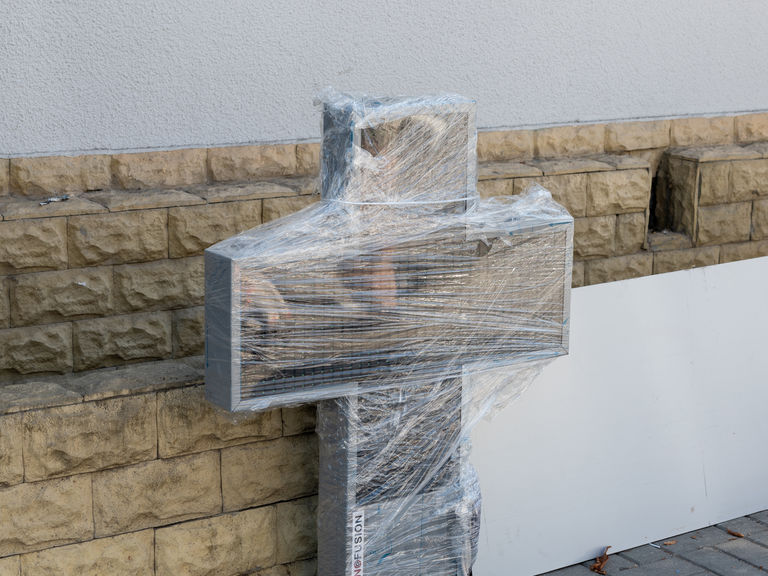Project Detail: A Desperate Run
Contest:
Swiss Storytelling Photo Grant 9th
Brand:
LuganoPhotoDays
Author:
Jeremy Knowles
Project Info
A Desperate Run
Photo series and walking conversation made in Chişinău, Moldova, in 2023.
'A Desperate Run' is a photography series recorded in Chişinău, Moldova, in 2023. The scenes and observations presented in this series are based upon a walking conversation through Ciocana - a district of the city built in the 1960s to quickly accommodate Chişinău's growing population at that time - with two Ciocana residents. Both the conversation and subsequent photographs explore how everyday life in Moldova has changed since the collapse of the Soviet Union, and how the Western ideology of 'democracy through capitalism' is still affecting changes to the physical environment of Chişinău today.
Excerpt from walking conversation:
J – Do you feel like this removal of murals – maybe like this one, in this Social Realism style – was part of a 'de-Sovietising' process?
O – I would think about it as a... like a desperate run. You know? Not a conscious one, just a desperate one, I would say, because, and this is only my opinion, no matter what happens to a country, plainly running away from our history is never the right option, I think. It will not give you anything good, at least.
J – To erase it?
O – Yeh. Because, by erasing your own history, I think, you are even more prone to delve into a completely new identity which will, very likely, have a nationalistic character to it. Like a new wave of… “this is what defines us” and “this is why we are better than others”, by conclusion. You know? And I think that’s dangerous. I think we should always keep a debate – an actual perception of what our different histories were and how they interacted to come to what we are today.
J – But I suppose there are limitations to that, you know. It depends on what the history is and how it is represented.
O – Of course!
J – For example, in the case of Germany, a lot of the symbols and ideologies of National Socialism…
O – But, you know, even fascist Germany didn’t disappear from Berlin. They didn’t cover the wall. They purposefully show it, because they want it to be shown. They want even a bad moment to be remembered. You know what I mean?
J – I totally agree with you on this.
O – There’s Checkpoint Charlie...
J – Sure, but these are signs of the occupation of Berlin, not necessarily of the war itself or of Nazi ideology. Not the things that were put in place by the Nazis that would promote their ideology.
What we were just talking about reminds me of George Orwell’s 1984, when all of the information that people are given suddenly shifts. One day, the posters and imagery are saying “we are fighting a war against Oceania” and then the next day everything has changed because the enemy has changed. And all of the signs now say “we have always been at war with this new enemy, we have never been at war with Oceania”.
I.e. An erasure of history.
O – I get the point that Orwell was trying to make but, with time, for me, it has been hard to take Orwell seriously. At one point he was my favourite author, and then I found out a lot about him. You know that he was like a spy for the UK? And the things that he says are bad to do... he was doing. He was the exact thing that he was criticising in his literature. But he was actually telling stuff to the UK government in order to lock up people. So, while I like some aspects of his works, I take everything he made with a grain of salt.
















